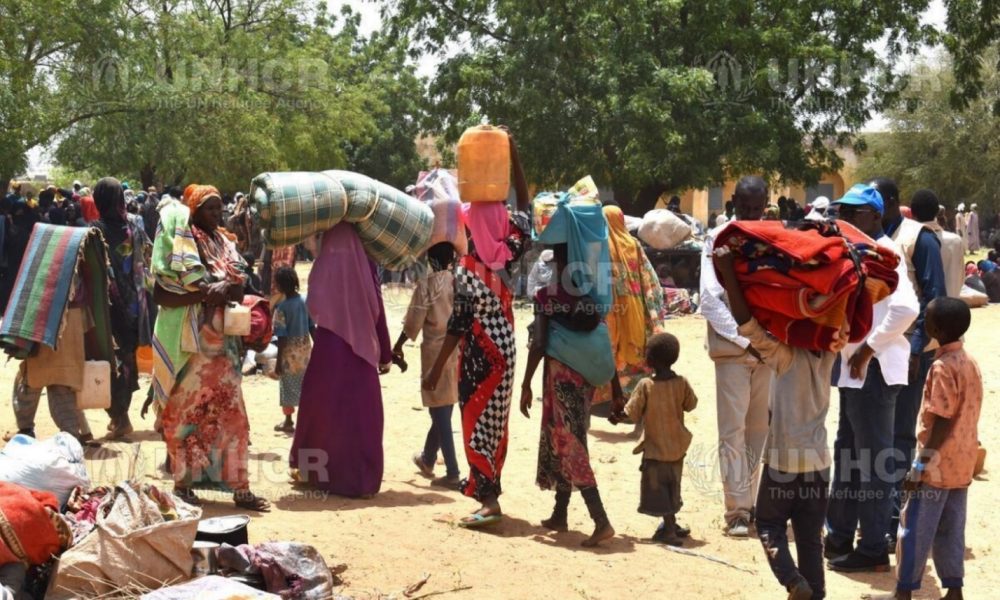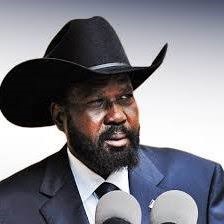By Mamer Abraham
Returnees and refugees in Wedwil Refugee Settlement are in need of urgent interventions to manage the growing food crisis, the United Nations High Commissioner for Refugees (UNHCR) has appealed.
Julius Taban Philip, the assistant commissioner for refugees at the Commission for Refugees Affairs in Northern Bahr El Ghazal State UNHCR currently supports about 121,000 returnees and approximately 8,993 refugees from Sudan as of Friday last week.
He said that more continue to arrive at the settlement on a daily basis with an estimated average of 50 people per day.
Taban said limited funding had contributed to delays in the distribution of tarpaulins, water for drinking, food, and other basic needs to the refugees and returnees on time.
“Indeed, the refugees, we have accommodated them, but we still have a lot of challenges that they are also facing. This is because of the limited funding that the UNHCR is giving to our partners,” he told the press in his office yesterday.
He stressed that it was in the plans that Wedwil camp would be the only camp where all the refugees across the country would be settled because it was far from the capital.
He said Wedwil camp was planned to be the sole settlement where all refugees across the country would settle because it is far from the capital city.
The assistant commissioner said the food ration given to refugees was recently increased to 70 per cent, but Taban said it was still inadequate.
He said discussions are ongoing with the World Food Programme to ensure a 100% increase in the returnees’ nutritional needs, particularly women, youth, and children.
“In fact, food is not enough, and they are even complaining. But I think it has been increased recently when the UNHCR commissioner came, I think there was that complaint over there and I think it was now increased to seventy percent and that is only for three months.”
Returnees integrate
On his part, Angelo Deng Akol, the Acting Chairperson of Relief and Rehabilitation Commission (RRC) in Northern Bahr El Ghazal State applauded the State Governor Tong Akeen Ngor for his decision to transfer about 121,000 returnees to live with their relatives.
Although Angelo decried the manner the conflict in Sudan had led to outstretched resources among the host community, he stated that the decision remained a sigh of relief as such people got a lot of support from their relatives.
Deng argued that the decision was not only for reintegration but also to create opportunities for the returnees and help them to be productive.
He said that they had been balancing the jobs offered across the state by offering similar percentages to the returnees so that they could secure jobs to sustain their families.
He called upon the well-wishers to support the emergency response before the situation worsened, noting that the resources in the state were already stretched by the support the host community had been giving to the refugees.
“But now as the media houses have come, you need to help us, tell all the well-wishers that we are overwhelmed by this influx of returnees, in the whole of Northern Bahr El Ghazal, that is bordering Sudan, and otherwise, we need to be given assistance and reach so that now we can respond to this emergency before it is growing worse,” he added.
Funding deficit
The conflict in Sudan started on April 15, 2023, between the Sudan Armed Forces (SAF) loyal to Abdel Fattah al-Burhan, and the Rapid Support Forces (RSF) loyal to Mohamed Hamdan Dagalo.
The UN reports indicated that the conflict had displaced nearly 5 million Sudanese both internally and externally into the neighboring countries of South Sudan, Chad, Central African Republic (CAR), Egypt, and Ethiopia.
Last month, the UN High Commissioner for Refugees, Filippo Grandi told the press that UNHCR was demanding $1 billion to satisfactorily respond to the humanitarian crisis caused by the conflict in Sudan.
He estimated that over $300 million would cater for the emergency response to the humanitarian crisis facing the refugees and returnees in South Sudan adding that the UN Refugee Agency had a funding deficit of over $400 million.
“We have a funding gap over the course of the next six months of over $400 million. So, we will continue to do the advocacy, and we will continue to try and fundraise, but it’s very important that the situation in the country stabilizes and that ultimately people will be able to meet their own needs as opposed to relying on WFP,” he explained.




